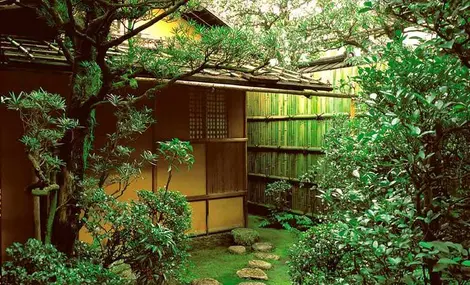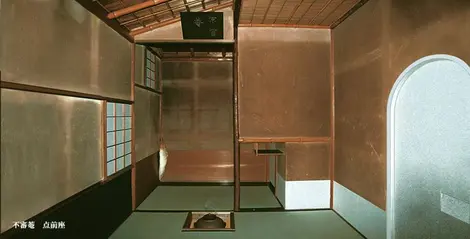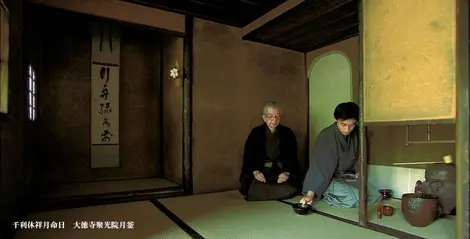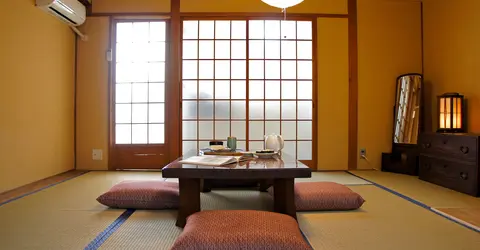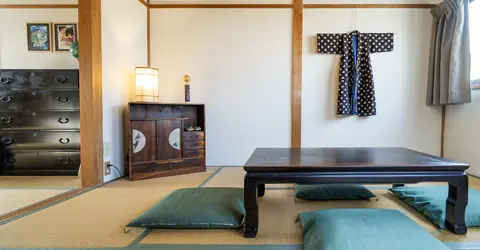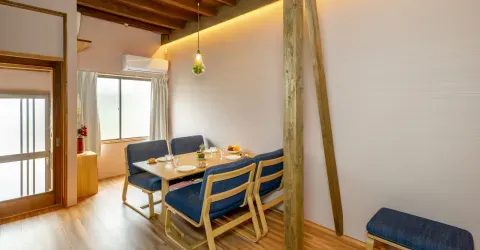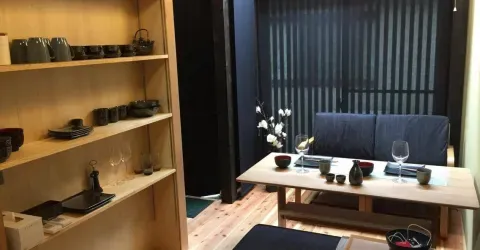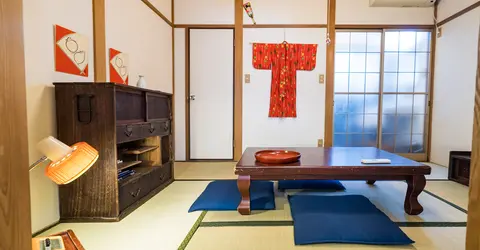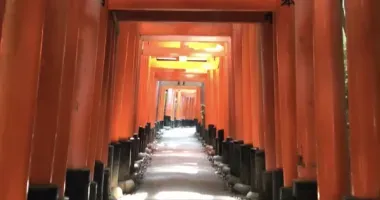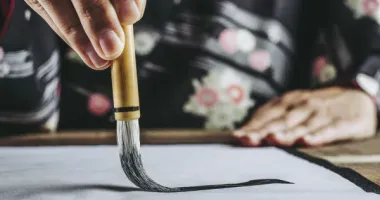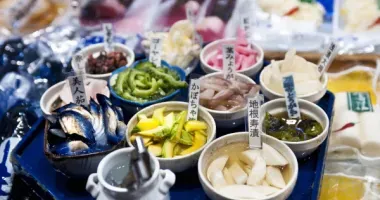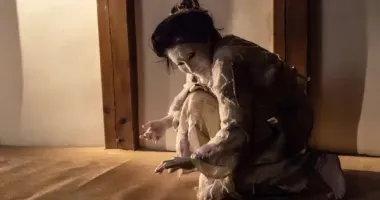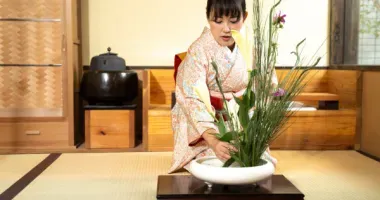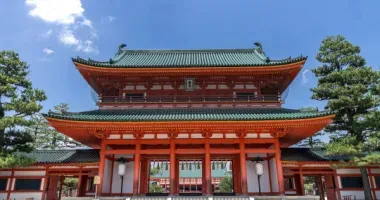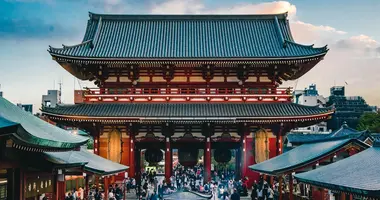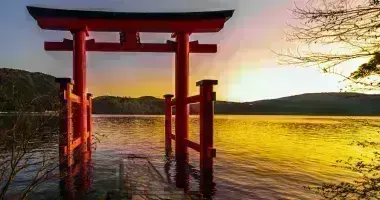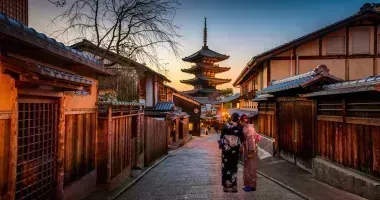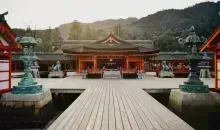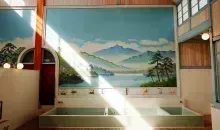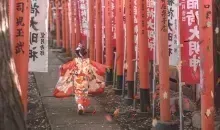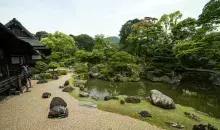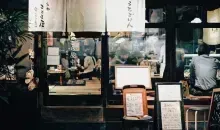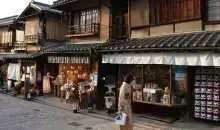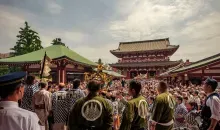Fushin'an Tea House 不審庵
Genesis of a national art
The Fushin'an tea house of the Omotesenke family has perpetuated the ceremonial rites related to this famous drink since the sixteenth century, and more recently, through its foundation.
At the origin of the art of the tea ceremony (chanoyu), there is one man. Sen no Rikyu (1522-1591), codified the unique chanoyu gestures, as they are still practiced today. He was the tea master of two unifiers of Japan, Nobunaga Oda (1534-1582), whose government was dubbed ochanoyu goseido (the chanoyu government ) due to the use of the ceremony for strategic purposes, and Hideyoshi Toyotomi (1536-1598), to whom Rikyu was a personal adviser. To better ensure his political role Rikyu moved to Kyoto and built a residence in the Daitokuji district, complete with a tea house he named Fushin'an, where he presided over many ceremonies. The name comes from the Zen proverb "Fushin hana hiraku konnichi no haru" ("The flowers mysteriously open. Spring is here").
A Family Affair
The descendants of Sen no Rikyu, the iemoto (elders or chiefs of lineage) ensured that the chanoyu of the great master was passed on. This particular style of ceremony comes from wabi (quiet, simplicity) that gave wabicha or chado (the Way of Tea), another name for chanoyu, marking the importance of the wabi concept that inspired Sen no Rikyu.
His grand-son, Sotan Genpaku (1587-1658) momentarily broke with family tradition, which was to serve the lords, to avoid the risk of incurring the same fate as Sen no Rikyu, who was disowned and forced to commit suicide by Hideyoshi Toyotomi. With the peace and stability brought by the Edo period (1603-1867) and the Tokugawa shogunate, this heir changed his mind and sent his four sons to provincial lords. His third son, Sosa Koshin (1613-1672), tea master of the Tokugawa branch of the Kii Province, for which the iemoto of the Omotosenke family continued to work for afterwards, inherited Fushin'an tea house when Sotan Genpaku retired. He then founded the Omotesenke family there, one of three branches of the Sen family (sansenke), for which the first name Sosa became hereditary for iemoto of this line. The other two branches were founded at the same time by two other son's of Genpaku. Shoshitsu Senso (1622-1697), the youngest of the four sons, inherited the last residence of his father at the back of Fushin'an, where he started the Urasenke lineage.
Finally, the second son, Soshu Ichio, after a career in lacquer, took the name "Sen" and founded the Mushanokoji-senke lineage. The differences between the three families seem as minor as a divergent opinion in how to whisk the tea, or how to create the foam on its surface. However, they quickly developed their own interpretations of chanoyu and today remain the three major schools of the Japanese 'Way of Tea', all with headquarters located in Kyoto.
Pass down for better propagation
The main role of the foundation today is to promote the art of tea as it is seen by the Omotensenke family. Its specific methods are taught in different centers throughout the country, where a certificate is awarded at the end of each session. They include intensive seven-day and six-night sessions for young people, twice a year in spring and summer. The Fushin'an tea house is not often open to the public so you'll have to contact the foundation, which is based in the Imperial Palace district, for the opening days - usually the twenty-second of each month.
A visit to the very source of chanoyu as we know it today is exceptional, due to the impressive collection of ceremonial utensils that belonged to Sen no Rikyu, which have been kept by the Omotesenke family. Because of its international openness, its many offices in the US and abroad and its specialized library, the Fushin'an Foundation is an ideal reference for any novice interested in learning the Way of Tea. It must, however, be kept in mind that the secrets of chado remain complex, take a long time to grasp, and that the path to mastering their subtleties requires the utmost patience.
Address, timetable & access
Address
Phone
+81(0)75 432 2195.Website
http://www.omotesenke.com/index.html



